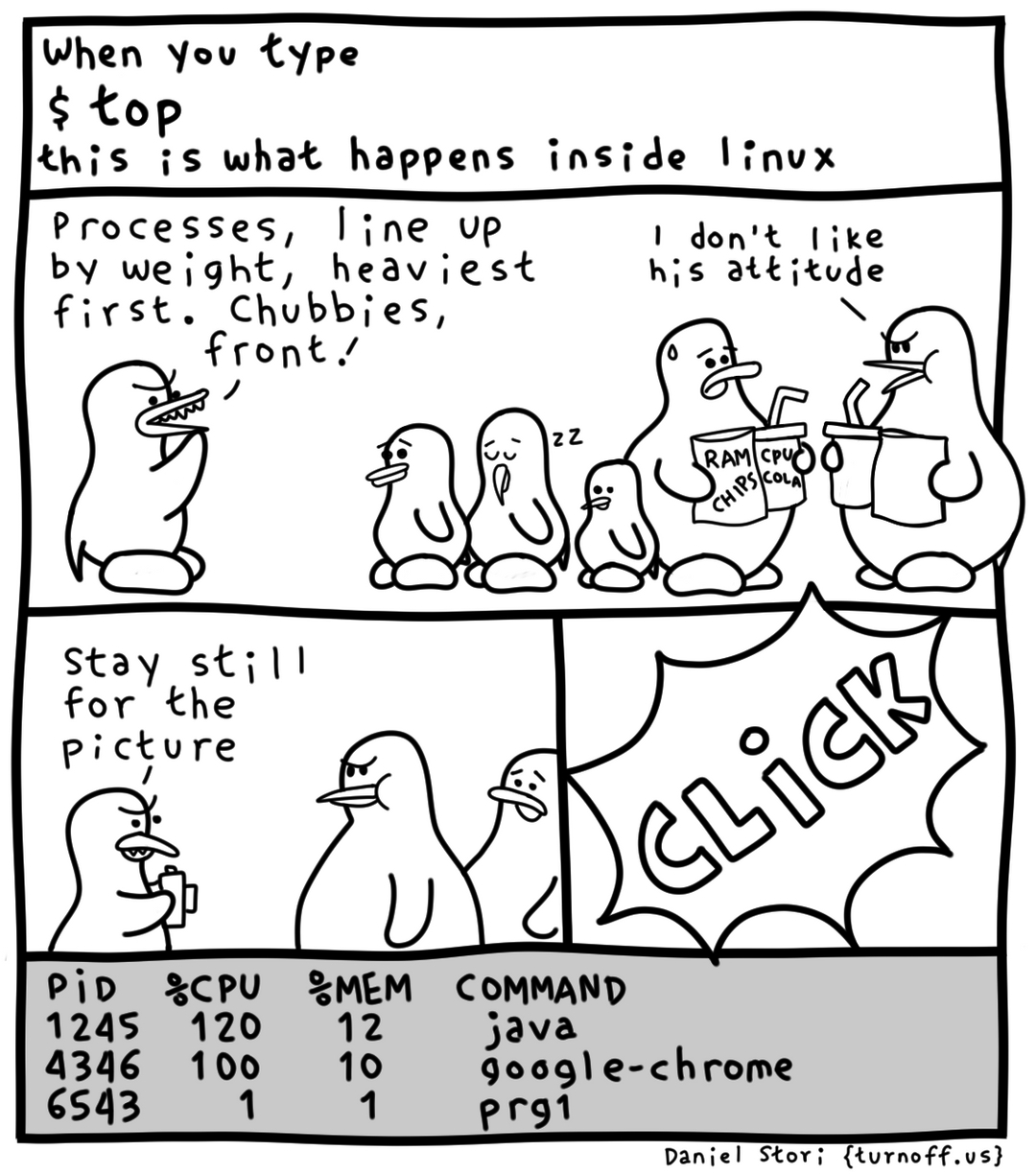this post was submitted on 16 Feb 2024
996 points (99.2% liked)
linuxmemes
22347 readers
2295 users here now
Hint: :q!
Sister communities:
Community rules (click to expand)
1. Follow the site-wide rules
- Instance-wide TOS: https://legal.lemmy.world/tos/
- Lemmy code of conduct: https://join-lemmy.org/docs/code_of_conduct.html
2. Be civil
- Understand the difference between a joke and an insult.
- Do not harrass or attack users for any reason. This includes using blanket terms, like "every user of thing".
- Don't get baited into back-and-forth insults. We are not animals.
- Leave remarks of "peasantry" to the PCMR community. If you dislike an OS/service/application, attack the thing you dislike, not the individuals who use it. Some people may not have a choice.
- Bigotry will not be tolerated.
- These rules are somewhat loosened when the subject is a public figure. Still, do not attack their person or incite harrassment.
3. Post Linux-related content
- Including Unix and BSD.
- Non-Linux content is acceptable as long as it makes a reference to Linux. For example, the poorly made mockery of
sudoin Windows. - No porn. Even if you watch it on a Linux machine.
4. No recent reposts
- Everybody uses Arch btw, can't quit Vim, <loves/tolerates/hates> systemd, and wants to interject for a moment. You can stop now.
5. 🇬🇧 Language/язык/Sprache
- This is primarily an English-speaking community. 🇬🇧🇦🇺🇺🇸
- Comments written in other languages are allowed.
- The substance of a post should be comprehensible for people who only speak English.
- Titles and post bodies written in other languages will be allowed, but only as long as the above rule is observed.
Please report posts and comments that break these rules!
Important: never execute code or follow advice that you don't understand or can't verify, especially here. The word of the day is credibility. This is a meme community -- even the most helpful comments might just be shitposts that can damage your system. Be aware, be smart, don't remove France.
founded 2 years ago
MODERATORS
you are viewing a single comment's thread
view the rest of the comments
view the rest of the comments

While I have no specific examples, that is the task of scheduling algorithms. The kernel is responsible for looking at running processes and figuring out how to assign it CPU time efficiently. That can include a variety of metrics, such as past behavior, if it is IO blocked, process priority, etc.
There is no perfect scheduling algorithm. Each one has tradeoffs depending on what the priority of the system is.
Also, you don't have to relinquish all control to the process if you have multiple cores. If you do, I believe that the process is interrupted after some time to allow the kernel to always be able to check in, but again, it depends on implementation.
That is called context switching. Simplified, a process is a list of instructions and a bundle of memory. The memory is composed of RAM and CPU registers (again, simplified). The process memory can stay in the same spot in RAM, but the registers need to move out of the way for another process to take its spot. When a process is yanked away, the state of the registers for that process is snapshotted and stored in RAM managed by the kernel. This allows another process to be allocated to that core without deleting important process data. To resume the paused process, you just need to restore the registers back to the snapshotted state and have the core execute the next instruction for that process, and the process would be none the wiser.
Of course, there's a lot more that happens internally, but that's the main gist.
Is there a perfect scheduler that is non-optimal in the Big(O) sense but is optimal if you're looking at maximizing hardware utilization? In other words, scheduler that takes a long time to determine CPU utilization for each process, but provides an optimal total CPU utilization? I realize that it would not be ideal since we'd essentially have these "sudden stops" as it recalculates the schedule. I'm just more interested in the theory.
If you have a fixed collection of processes to run on a single processor and unlimited time to schedule them in, you can always brute force all permutations of the processes and then pick whichever permutation maximizes and/or minimizes whatever property you like. The problem with this approach is that it has awful time complexity.
Edit: There's probably other subtle issues that can arise, like I/O interrupts and other weird events fwiw.
How would you deal with iowaits in a system like that? I can perfectly burn 100% of CPU time running a poll(), but that’s not useful work…
¯\_(ツ)_/¯
I guess that's why I asked. I'm just curious if it's even possible.